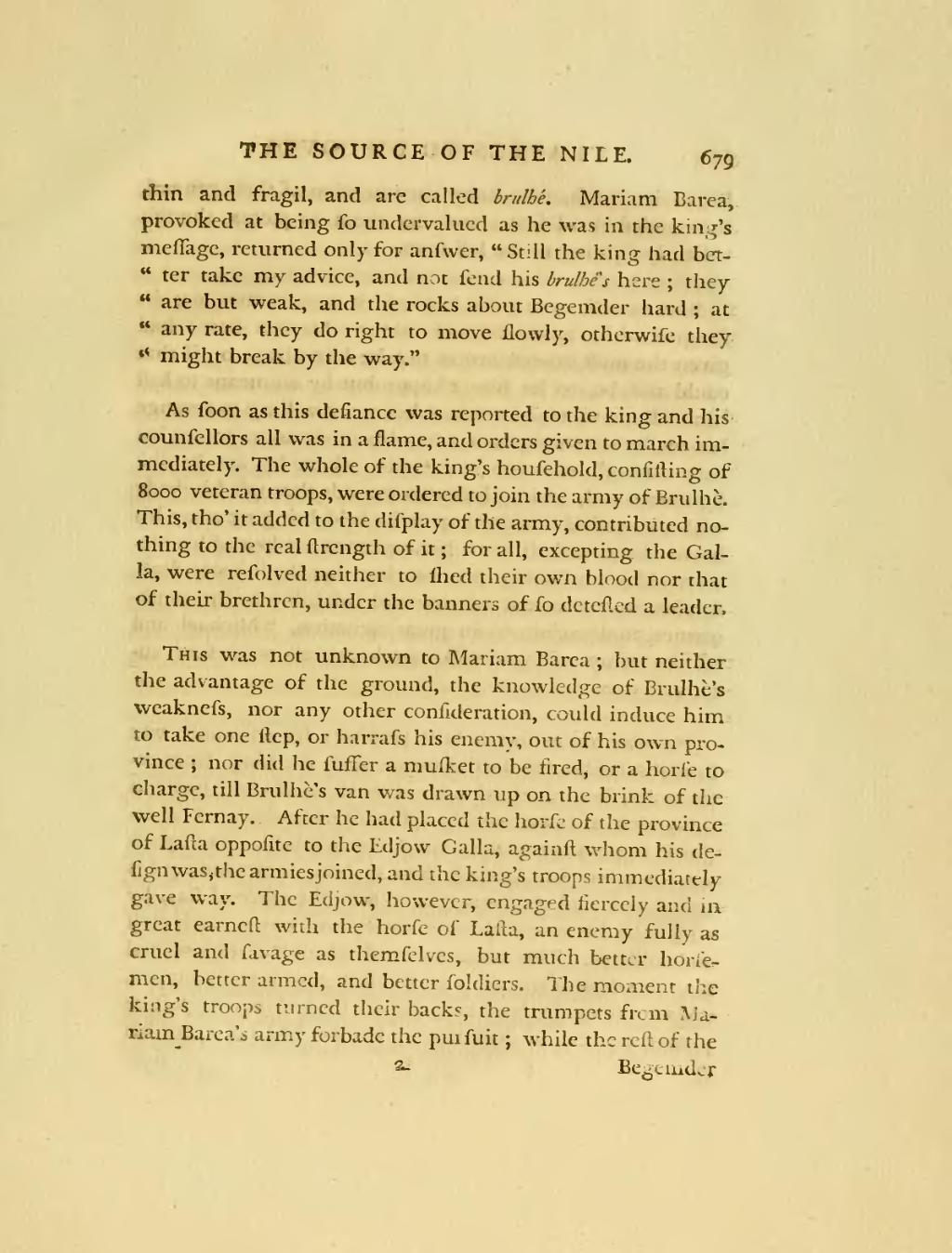thin and fragil, and are called brulhé. Mariam Barea, provoked at being so undervalued as he was in the king's message, returned only for answer, "Still the king had better take my advice, and not send his brulhè's here; they are but weak, and the rocks about Begemder hard; at any rate, they do right to move slowly, otherwise they might break by the way."
As soon as this defiance was reported to the king and his counsellors all was in a flame, and orders given to march immediately. The whole of the king's household, consisting of 8000 veteran troops, were ordered to join the army of Brulhè. This, tho' it added to the display of the army, contributed nothing to the real strength of it; for all, excepting the Galla, were resolved neither to shed their own blood nor that of their brethren, under the banners of so detested a leader.
This was not unknown to Mariam Barea; but neither the advantage of the ground, the knowledge of Brulhè's weakness, nor any other consideration, could induce him to take one step, or harrass his enemy, out of his own province; nor did he suffer a musket to be fired, or a horse to charge, till Brulhè's van was drawn up on the brink of the well Fernay. After he had placed the horse of the province of Lasta opposite to the Edjow Galla, against whom his design was the armies joined, and the king's troops immediately gave way. The Edjow, however, engaged fiercely and in great earnest with the horse of Lasta, an enemy fully as cruel and savage as themselves, but much better horse-men, better armed, and better soldiers. The moment the king's troops turned their backs, the trumpets from Mariam Barea's army forbade the pursuit; while the rest of the
